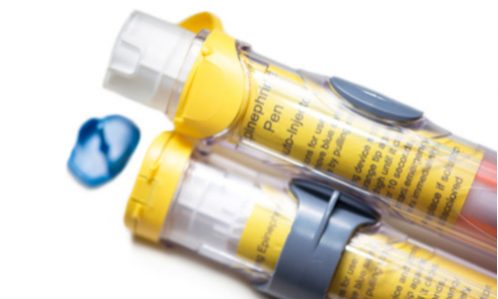The US Court of Appeals for the 10th Circuit affirmed a district court’s dismissal of an antitrust lawsuit against pharmaceutical company Mylan, the distributor of EpiPen, by a rival firm.
Mylan acquired the rights to distribute EpiPen in 2017, a time during which the price of the drug skyrocketed to over $600. Pharma giant Sanofi sued Mylan and alleged that Mylan monopolized the epinephrine auto-injector market, essentially blocking Sanofi from bringing its own product — the Auvi-Q auto-injector — to market. The two products have the same purpose: the delivery of potentially life-saving epinephrine for individuals at risk for anaphylaxis due to allergic reaction.
In its lawsuit, Sanofi argued that coupon and rebate programs offered to health plans by Mylan amounted to anticompetitive activity.
As seen in the above image, Mylan’s yellow-capped EpiPen allows an individual to flip the cap open and swing the tube down firmly against one’s thigh, causing the needle to automatically protract and inject epinephrine. By contrast, the red-labeled Auvi-Q is smaller and flatter, and has a retractable needle. It also plays audio instructions. To administer Auvi-Q, the patient removes its cover and follows the audio instructions to press against the leg without the need of the swing motion.
The district court threw out the lawsuit, and a three-judge panel of the 1oth Circuit affirmed. U.S. Circuit Judge Bobby Baldock, a Ronald Reagan appointee, penned the 89-page decision for panel, which found that the use of coupons and rebates do not constitute federal antitrust violations. US Circuit Judges Nancy Moritz (a Barack Obama appointee), and Allison Eid (a Donald Trump appointee) also heard the case.
Want more news? Subscribe to CPI’s free daily newsletter for more headlines and updates on antitrust developments around the world.

